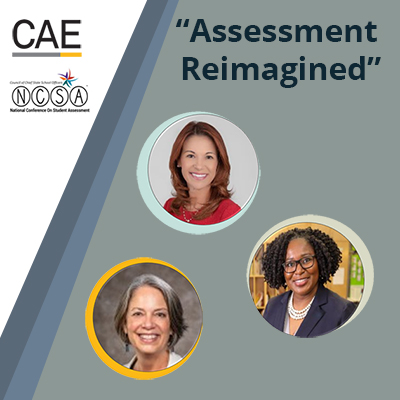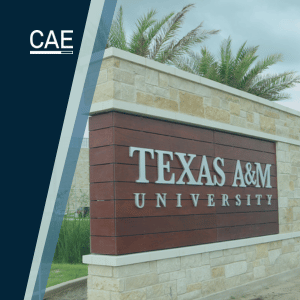Featuring education leaders, NCSA panel will unpack how education institutions can measure, evaluate, and ensure their graduates possess the skills needed for success in college and career.
NEW YORK, June 18, 2024 | Source: GlobeNewswire
The Council for Aid to Education, Inc. (CAE), a nonprofit developer of performance-based assessments that authentically measure students’ essential academic and career skills, today announced that it will participate in a panel discussion, “Assessment Reimagined,” at this year’s Council of Chief State School Officers (CCSSO) National Conference on Student Assessments (NCSA). Johnny Key, former Arkansas Secretary of Education, will facilitate the panel featuring Kirsten Baesler, North Dakota State Superintendent of K12 Schools, Dr. T. Nakia Towns, Chief Operating Officer at the Accelerate–The National Collaborative for Accelerated Learning and CAE Board Member, Dr. Denise Airola, Director at the Office of Innovation for Education at the University of Arkansas, and CAE’s Chief Academic Officer, Dr. Doris Zahner. The conversation will explore new assessment models that enable states and districts to measure, evaluate, and ensure that their graduates possess academic, technical, and future-ready skills including problem solving, critical thinking, and communication.
Educators, policymakers, employers, and community leaders agree that to prepare students for the job market of today and tomorrow, institutions can no longer rely solely on traditional academic achievement measures such as summative test scores and grades. In fact, a growing consensus of education leaders and stakeholders are advocating for more holistic approaches to measuring student achievement.
At the end of 2023, 17 states and 126 school districts had adopted a Portrait of a Graduate with many more finalizing theirs. Every state in the U.S. has some form of competency-based education (CBE) in place, which advocates say is more personalized, gives students room to grow in their learning, and ensures that graduates are prepared for the challenges and opportunities they’ll encounter in the adult world. These frameworks guide schools in developing curricula, assessment, and learning experiences that support the development of future-ready skills and attributes in their students.
“Portraits always include competencies such as critical thinking, problem solving, collaboration, and communication,” explains panelist Dr. Towns. “But the current assessment model of only measuring numeracy and literacy skills doesn’t align with these competencies nor with the mastery approach of competency-based learning. We need a new approach that measures what students can do, not just what they can remember.”
During the discussion, panelists will share their perspectives on the aspects of high-quality, appropriate assessment models. Additionally, examples of current approaches that have been implemented and scaled in K12 will be presented. Dr. Zahner will provide insight into why performance-based assessments are such a powerful tool to ensure the success of educational models like competency-based learning by measuring not only students’ content knowledge, but their proficiency with critical thinking, problem solving, and written communication skills, providing a roadmap for student improvement.
“Assessments can’t just be about accountability,” shares Mr. Key, who will moderate the panel discussion. “The assessment model we envision, and is already in practice in some districts, embraces experiences of and expectations for students, supports student agency, facilitates family engagement, and informs instruction. It’s a game changer for today’s students and absolutely necessary in order to prepare young people for success whatever the future holds for them.”
The session titled “Assessment Reimagined” will occur on June 24, 2024, from 2:00 to 3:00 p.m. PT at NCSA in Seattle, Washington. Visit the NCSA website for details.
About CAE
As a nonprofit whose mission is to help improve the academic and career outcomes of secondary and higher education students, CAE is the leader in designing innovative performance tasks for measurement and instruction of higher-order skills and within subject areas.
Over the past 20 years, CAE has helped over 825,000 students globally understand and improve their proficiency in critical thinking, problem solving, and effective written communication. Additionally, CAE’s subject area assessments have helped millions of K12 students across the US. Supported by best practices in assessment development, administration and psychometrics, CAE’s performance-based assessments include the Collegiate Learning Assessment (CLA+) and College and Career Readiness Assessment (CCRA+). To learn more, please visit cae.org and connect with us on LinkedIn and YouTube.



